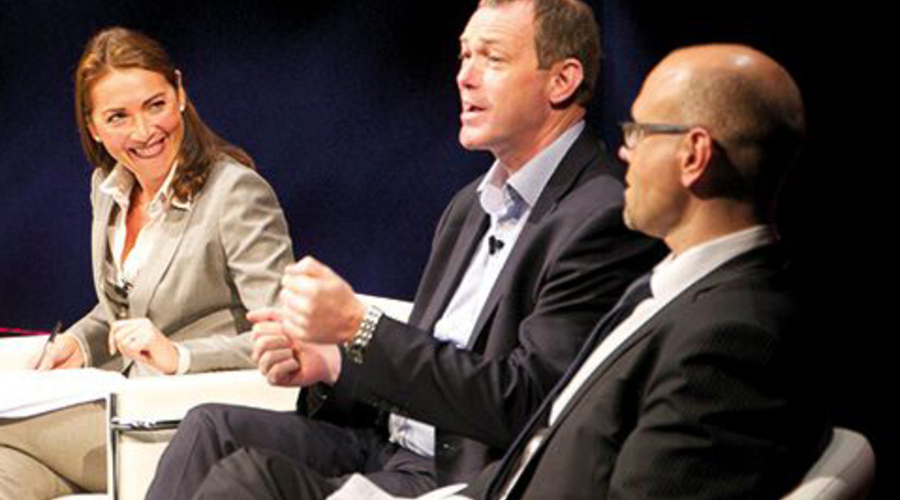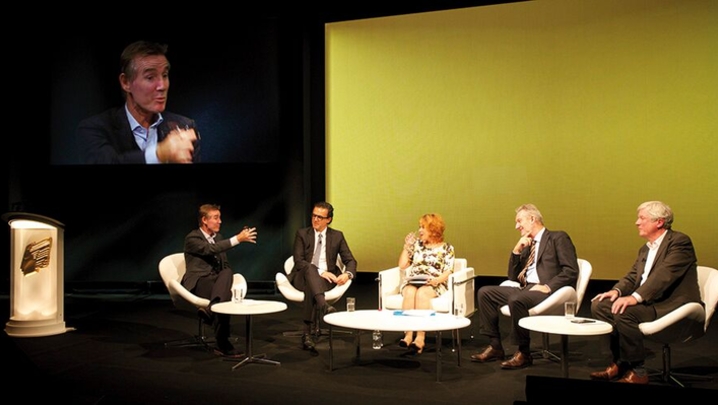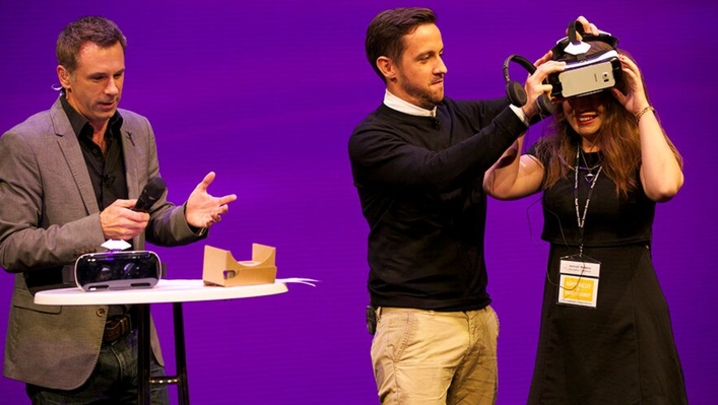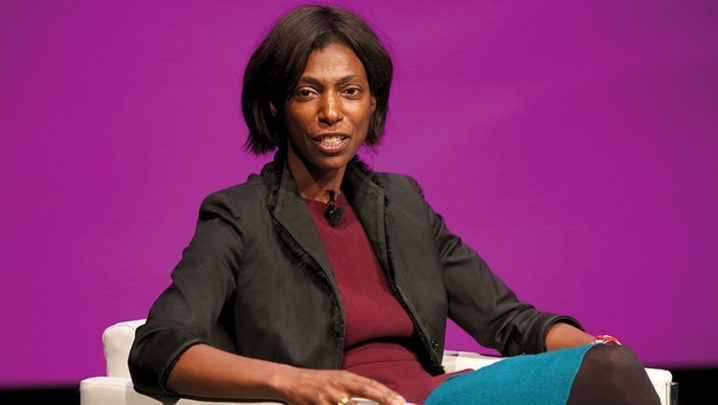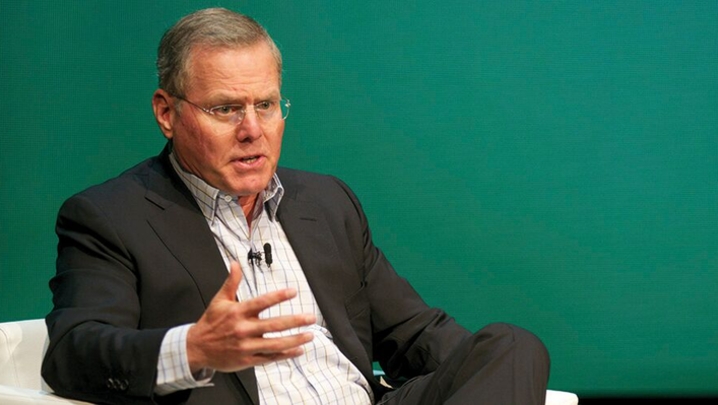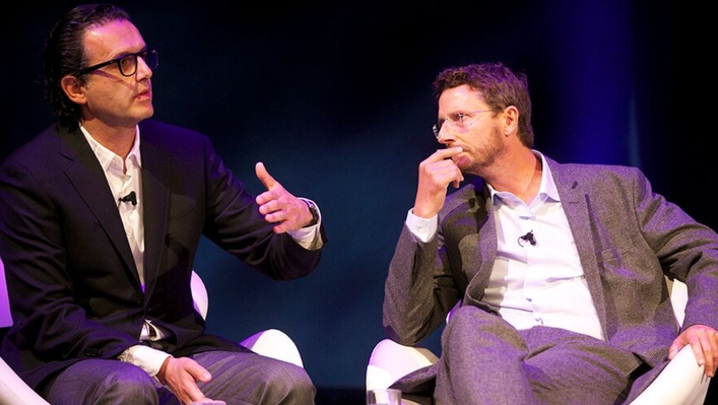Cambridge Convention 2015 Session Thirteen: Independent producers argue that plans to end national markets within the EU will damage their businesses
The European Commission is determined to tear down regulatory walls and move from 28 national markets to a Digital Single Market. TV’s independent sector harbours strong doubts, especially if geo-blocking, which prevents content crossing borders, is outlawed.
In a film shown at the session – “TV without borders: is the Digital Single Market boom or bust for UK television?” – the threat to indies was outlined by Gareth Neame. The Managing Director of Carnival Films, which makes ITV’s Downton Abbey, said: “[Initially,] we financed it by risking our own money against the value of the major European markets, such as the UK, France and Germany… the individual value of those major territories in Europe far outweighs what the value would be within a single market.”
Panellist Jörgen Gren, the European Commission Cabinet Member for the Digital Single Market (DSM), tried to allay indies’ fears. “Digital transformation is a high-speed train and the DSM is there to ensure that we actually get on this train, breaking down barriers, making better choices for consumers and ensuring we have a competitive industry,” he said.
The Commission is currently consulting on and assessing a number of measures, which it hopes to introduce by the end of 2016.
“We need to protect our rights to sell our property – if we remove geo-blocking, we can’t do that,” argued John McVay, CEO of the UK’s indie trade association, Pact.
He offered an example of how his members could be affected: “Say, a member is selling [a series] to a free-to-air broadcaster in Lithuania, which then puts it on a VoD service for everyone else in Europe to see for free. [This] will then damage the price I can get in other parts of Europe.”
The Commission claims that the DSM will create €415bn of growth in Europe, pointed out the session’s chair, Katya Adler, Europe Editor for BBC News – but did it have any evidence?
“If we are able to improve enforcement in fighting piracy,” replied Gren, “if we take down the barriers for the industry to sell their products across the board, if we help consumers to find paid-for content and if we expand the market, this will help the industry.”
To applause from the hall, McVay replied: “I welcome your comments on enforcement but it does seem to be conditional: agree to get rid of geo-blocking and open up cross-border access, then we’ll do something about piracy. The Commission should be doing something about piracy anyway.”
Antony Walker, Deputy CEO of TechUK, which represents the country’s technology companies, backed the DSM: “There’s a huge opportunity for the UK technology and creative industries, working together in a large-scale market that is open, dynamic and flexible.”
He was perplexed that geo-blocking, which is “just a tool for managing and expressing rights across Europe”, was so high on the EC’s agenda. “We don’t see cross-border access as a huge issue.”
BT Head of Media Policy Helen Burrows was also sceptical: “Geo-blocking is the means, not the end. To protect the value of markets, we are still going to need some geo-blocking.”
One widespread fear, said Adler, was that a Digital Single Market would benefit “the big boys, and not necessarily the European big boys, but the global players”.
Gren disagreed: “The only winners of a fragmented internal market [would be] the big players – the more we take down the barriers, the better it is for businesses to scale up.”
As evidence, he pointed to Swedish music streaming service Spotify, which “had to go to the US to scale up, come back and now has sufficient clout to expand into most of the European markets”.
The Commission, reckoned McVay, should focus less on removing national borders and “get rid of local red tape, improve broadband speeds and make mobile data roaming charges cheaper – all these things would really benefit rights holders”.
The panellists were: Helen Burrows, Head of Media Policy, BT; Jörgen Gren, European Commission Cabinet Member, Digital Single Market; John McVay, CEO, Pact; and Antony Walker, Deputy CEO, TechUK. The session was chaired by Katya Adler, Europe Editor, BBC News, and produced by Denise Bassett, Nigel Warner and Peter Jones.
RTS delegates offer their view
Nigel Walley, Managing Director, Decipher: ‘The platform is becoming more important than the country in the way we distribute TV… it might be time to start… looking to sell to multiple platforms across Europe.’
Ed Shedd, Partner, Deloitte: ‘I buy the idea that the Digital Single Market can expand opportunities but isn’t this a question about the timing of investment?… When you’re selling rights you’re essentially selling before you’ve made something, primarily so you’ve actually got the funding to make content.
‘When you’re in a Digital Single Market you’re… saying that it’s a scalable opportunity driven by subs, which means the revenue is coming in after you’ve made something. One suggestion would be to look at that cash flow… and understand how best to ameliorate that potential gap in funding.’
John McVay, Chief Executive, Pact: ‘In the UK, all our budgets have deficits and the way we close those deficits is by pre-selling the rights to buyers.
‘If we can’t pre-sell, then we won’t be able to make [the programme], or we’ll have to make it at a lower price, which diminishes quality and the competitiveness of the UK.… There aren’t enough good platforms to sell to; I wish that there were more pan-European pay-TV or subscription VoD platforms.’
Helen Burrows, Head of Media Policy, BT: ‘How can you continue to have effective competition between platforms? As they get bigger, that becomes a risk both for consumer outcomes and for producers selling to those platforms.
‘How do you continue to enable regional players [to prosper] so that there is diversity across Europe? How do you [guarantee] the investment that produces the amazing richness and quantity of content we see at the moment?
‘The idea [of the Digital Single Market] is appealing, but the execution… is where the challenge is.’

